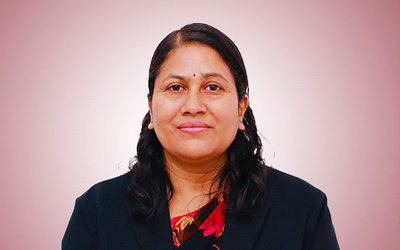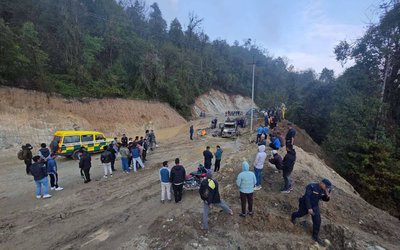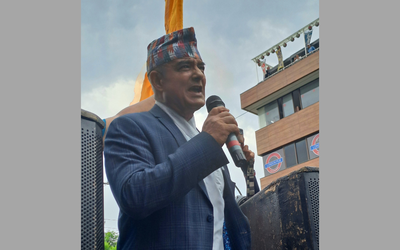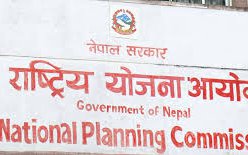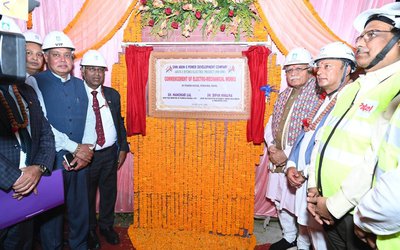The World Economic Forumranks Nepal 144th out of 148 countries in infrastructure and 142nd on public trust of its politicians. Throw in the World Bank’s ranking of Nepal as the Southeast Asia’s third poorest nation, and these are not the acmes of a hidden paradise. In a country where honking is the national anthem, why are thousands of expats making their home here each year?
Saturday Farmer’s Market is an expatriate haven. Close to the centre but far enough from Thamel to actually feel like you’re in Kathmandu, the traditional, fete-style market makes an ideal stop for those Westerners looking for a taste of home. Cradled in the ambience of the 1905 restaurant, surrounded by wooden bridges and water cabbage ponds, it’s an essential place to declare sanctuary from Capital bustle.After three months of dirty, crowded Nepalese living, it was also where I came to ask the question: ‘Why did I decide to move here again?’
‘Did you know that muffin is teaching a girl how to dance?’
Anne arrived from Holland a month ago and has been working at a Dutch bakery. Linked to the bakery is a performing arts school providing low cost lessons for Nepalese children. The bakery, which incidentally makes a butter cake that can bring a tear to the eye, came as an afterthought to augment the school’s income.
Anne’s was not the only story at the market, with most stalls linked to wider, more philanthropic pursuits.
Matt is Kathmandu’s only Canadian milkman. With a smile bright enough to make you want to take him home to meet your mother, Matt and his brother came here two years ago to support a local Children’s Home. Their goal is to create a network of companies that allow the children’s home to be self-sufficient and give the orphans a chance for work experience. So far they have started two businesses, and Milkmandu provides organic dairy products to customers and markets across Kathmandu.
‘For us Kathmandu is a rewarding city, rich in culture and opportunities. Being a delivery company can be a little difficult,’ he adds cheerily, ‘especially in a city with no street names.’
Combine artisan food and cultural richness with the social consciousness of saints, and the lure of Nepal begins to make more sense.
Charlee struck me as a somewhat different case. I sat on a terrace one evening for dinner when I saw Charlee walk towards the stage and take the microphone. Charlee picks apples in Kent. She uses the money to come to Nepal and India so she can sing.
‘I love to sing,’ she explains, ‘but people seemed to have stopped singing for pleasure.’ In Nepal, Charlee can afford to sing without the financial pressures of fame or long work hours. ‘It’s an easier, more creative way of living here.’ Only on the subcontinent did Charlee start to call herself a singer. ‘It took a lot to say it the first time.’
She sings beautifully.
Statistics have never been Nepal’s friend. They certainly don’t do it justice. Interview after interview, though, revealed one commonality among us expats: that we are coming here to realise dreams that would have been nearly impossible in our own countries. Lack of infrastructure inarguably has its disadvantages and can be frustrating to high heaven, but Western markets see higher costs, more intense competition, and plain bureaucracy – all of which inhibit small business growth and virtually decimate the charitable spirit.
‘And so what brought you here?’ Charlee asked.
‘Me?’ Interviewees aren’t really supposed to ask the questions.
‘I suppose I came here to be a journalist.’
- An Inconvenient Truth
- Apr 18, 2014
- Mental Health: Arrested Development
- Apr 05, 2014
- Losar: A Year of Progress and Generosity
- Mar 09, 2014
- ‘Shivaratri: Caste in a New Light’
- Mar 09, 2014



